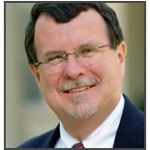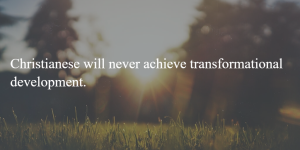 Dr. Bryant L. Myers, for years a leader in the development arm of World Vision and now a professor of international development at Fuller Seminary, has written a thoughtful piece on development titled: Progressive Pentecostalism, Development, and Christian Development NGOs: A Challenge and an Opportunity.
Dr. Bryant L. Myers, for years a leader in the development arm of World Vision and now a professor of international development at Fuller Seminary, has written a thoughtful piece on development titled: Progressive Pentecostalism, Development, and Christian Development NGOs: A Challenge and an Opportunity.
In the executive summary of his paper, Myers writes:
Something unusual happened in the Global South in the late 1980s and 1990s. A new expression of Pentecostalism arose that was distinguished by a combination of Pentecostal worship, aggressive evangelism, and grassroots efforts to provide education, health services and other relief, and development ministries. The phenomenon has attracted the attention of secular scholars. Their research makes the claim that, in five instances, these churches were better positioned and more effective in development work than international NGOs at work in the same city. This article will describe and assess these findings and then apply them to Christian development NGOs.
Myers examines the distinctions between the modern secular approach to development, on the one hand, and the work of Pentecostal churches in Africa (and elsewhere) on the other. I want to introduce our readers to this significant paper about poverty and development.
Western poverty fighters bring a perspective very different from African Pentecostals living in poverty
Myers contrasts the difference between two perspectives: 1) Westerners fighting poverty in the developing world, and 2) African Pentecostals trapped in poverty. Like all of us in the West, the former are influenced by Western materialistic assumptions.
Myers quotes the late Dr. Ogbu U. Kalu, Professor of World Christianity and Missions at McCormick Theological Seminary in Chicago.
The ordinary Pentecostal in Africa is less concerned with modernity and globalization and more focused on a renewed relationship with God, intimacy with the transcendental, empowerment by the Holy Spirit and protection in the blood of Jesus as the person struggles to eke out a viable life in a hostile environment.
Dr. Kalu understands transcendence, a concept foreign to moderns. He uses biblical language. But we would do well to ask, What worldview is behind these words?
The phrase “eke out a viable life in a hostile environment” suggests an underlying worldview of animism. An animist sees the universe as hostile, controlled by malevolent spirits to be fended off by ritual.
This view fails to take into account the richness of Africa’s lands and the power of the biblical concept of imago Dei man. It sees barriers, while a biblical worldview sees opportunity. God desires that the people of Africa thrive in the land He has given them.
 Kalu uses Christian language, but such language may be merely an overlay of the modernism behind evangelical relief and development (or even of the neo-Pentecostal movement in Africa). In any case, Christianese will never achieve transformational development. Only the underlying framework of Judeo-Christian theism will achieve God’s intentions for people.
Kalu uses Christian language, but such language may be merely an overlay of the modernism behind evangelical relief and development (or even of the neo-Pentecostal movement in Africa). In any case, Christianese will never achieve transformational development. Only the underlying framework of Judeo-Christian theism will achieve God’s intentions for people.
Myers explains that the deepest conflict is between the divergent worldviews of the Western NGO and the Pentecostal church.
At a deeper level, the differences in effectiveness may be related to differing views of the world and how it works, of what poverty is, what causes it, and how poverty should be addressed. These ethnographies suggest that Progressive Pentecostal churches view poverty and the better human future in ways that are more in line with the poor they serve. This stands in stark contrast to the worldviews, and especially the ontologies, of NGOs.
… For these churches, the problem of poverty is spiritual, and the solutions come from the Holy Spirit, repentance, worship, and holy living. For the (secular) international NGO, the problem of poverty is material and is thus best addressed with money, technology, and good public policy.
Both poverty and wealth need to be examined comprehensively
Here again, Myers’ analysis seems to fall short, especially his analysis of the church. Yes, the church sees the problem as spiritual. But the church is to function from a biblical worldview in which spiritual and physical realities are integrated. Problems of poverty and wealth need to be examined comprehensively. Analysis that is only material or only spiritual is faulty.
For the churches, the adversary is Satan and traditional religion. To the secular NGO, the adversary is lack of education and unjust structures and systems.
Yes, this is true! However, where is the analysis that involves Truth? Where is the understanding, as Paul describes it, that our battle is against mental strongholds of both the materialistic and spiritualistic perspective? For the church to frame the adversary as Satan may be true in part. But we must not forget that Satan is a liar and the father of lies. He is out to destroy individuals and nations. He brings this destruction by lying at the level of culture. When a person or a nation believes his lies, they are impoverished and enslaved.
In other words, who is behind a systemic, culture-wide lack of education? Who is driving unjust structures and systems? Are we to believe these are free of satanic influence?
So it is simplistic to say, “The problem is Satan!” One must acknowledge the power of words to bless and to curse, to develop and destroy. But if you do not acknowledge the reality of the created order and the role of truth in development, then this “spiritual” perspective is the gateway to an animistic understanding and a focus on spiritual warfare as the sole or primary means of fighting poverty.
For the churches, the world is an “enchanted place,” where the central issue is managing power, especially spiritual power. For the secular NGO, the world is a material place that can be improved by reason and science.
A ren’t science and reason part of the solution? Isn’t understanding the universe in all its mystery part of the solution? Would Myers have us believe science (the systemization of God’s creation principles) has no contribution to make to the solution?
ren’t science and reason part of the solution? Isn’t understanding the universe in all its mystery part of the solution? Would Myers have us believe science (the systemization of God’s creation principles) has no contribution to make to the solution?
The fact is, neither the African nor the Western view is complete. It’s a matter of “both and,” not “either or.” The problem comes when each underlying worldview is allowed to stand and then the two are pitted against each other.
It is the beauty and power of the third alternative—a biblical worldview—that allows for human flourishing.
– Darrow Miller






2 Comments
Jon Davis Jr
September 21, 2015 - 11:31 pmGood Stuff.
I want to be a part of getting people to read more stuff like this, rather than the guilt-manipulation from the world of political socialism.
Real truth that carries the possibility of real transformation!
admin
September 22, 2015 - 1:33 pmThanks John
Hope you are well.
darrow